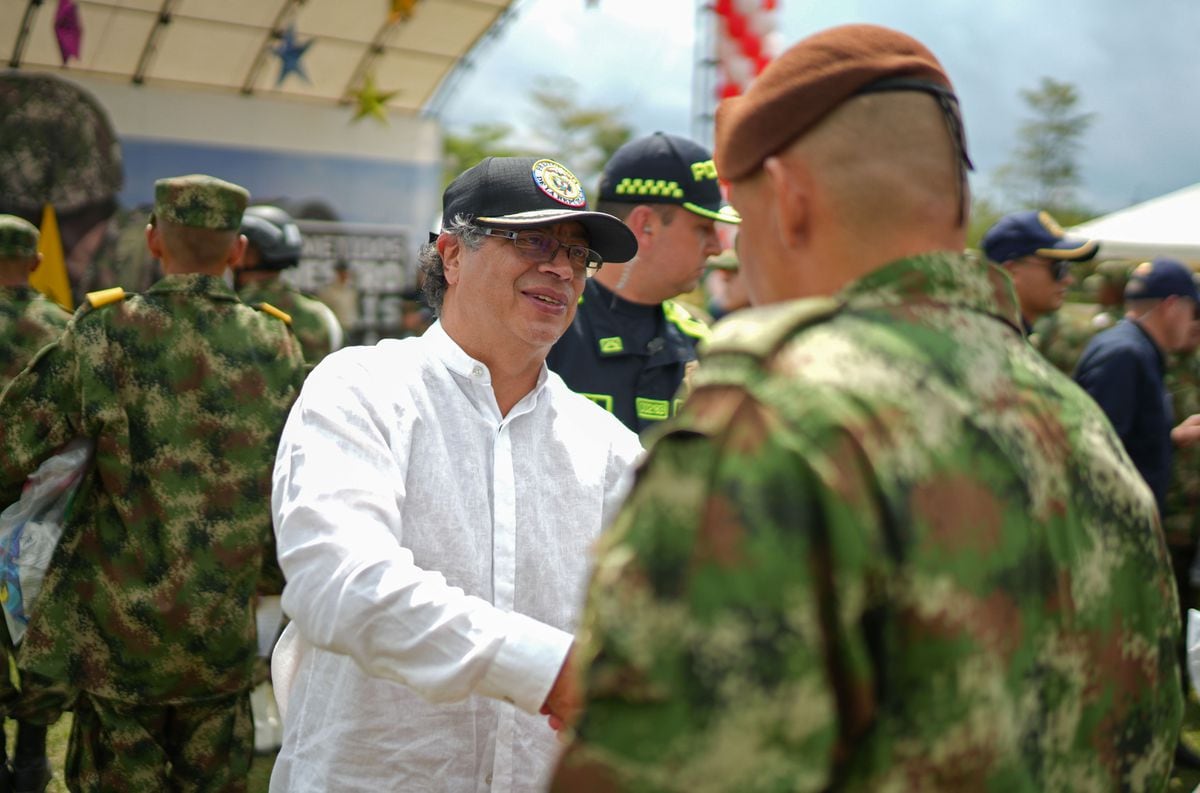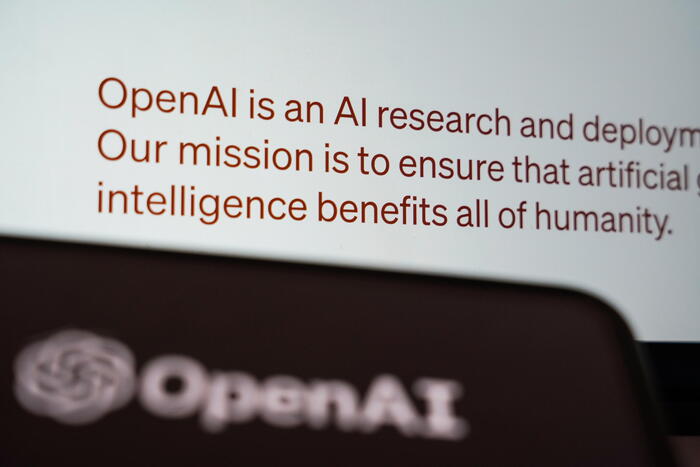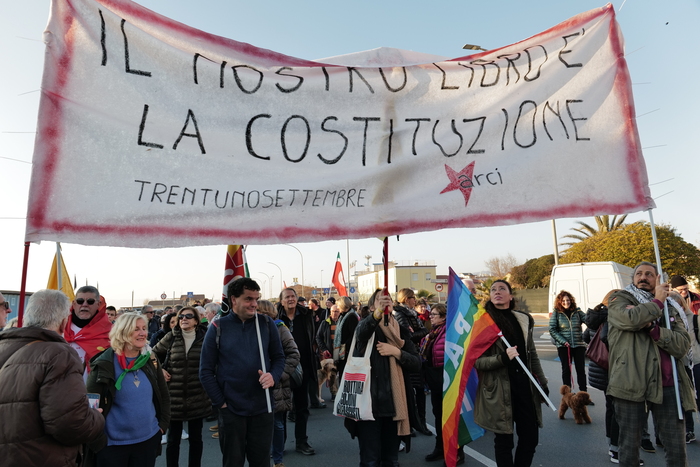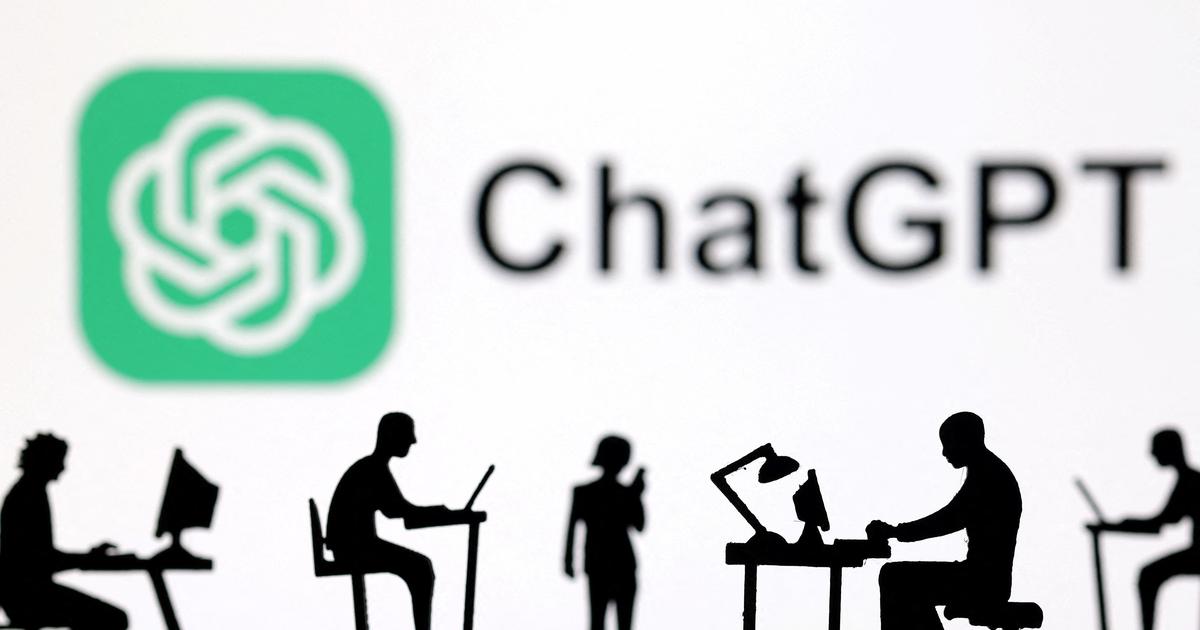Colombian President Gustavo Petro greets a soldier in Saravena, Arauca, on November 22, 2022.Colombian Presidency (EFE)
Gustavo Petro grew up politically in the M-19, a guerrilla group that became very popular in Colombia for its daring strikes.
Its founders stole the sword of the military hero Simón Bolívar, but in flight they discovered that they had lost it along the way.
There they forged the fame of being as intrepid as they were clueless.
The president of Colombia has received all this inheritance, which has just become clear during the 72 hours of a ceasefire truce with the ELN guerrillas that never existed.
On the last day of the year, Petro was tweeting all day.
The president is constantly checking Twitter on his phone and paying attention to what people are saying to him.
When he tweets he lowers his glasses to look directly at the screen.
That December 31, he waits at the stroke of midnight to announce something important: his government has agreed to a bilateral ceasefire with five armed groups, including the ELN.
The message is followed by a statement from the Presidency in which he announces various decrees to carry out the processes with each organization.
Everything seemed tied up.
Although there were some details that drew attention.
An affair like this, for two, like a dance, is usually signed by both parties and not by just one, as it seemed.
No one from the ELN said anything about it, which drew a lot of attention.
And not necessarily the entire section of the State was aware.
Some factions of the Army claim that they were unaware of the ceasefire.
Police colonel Sandra Hernández, two days later, said at a press conference that, "officially", she had no order on the ceasefire and that they hoped to have a meeting in the next few days to find out what to do.
It sounded disturbing.
In reality, the armistice did not exist.
The ELN denied it this Tuesday.
Simply put, the guerrillas explained, no ceasefire had been agreed with the Petro government.
That fictitious peace had lasted barely three days.
Petro called his officials in charge of negotiating with the guerrillas and said that in that meeting with them he was going to discuss repealing the decree with the ELN and resuming military actions against that guerrilla.
It was a furious message after it was exposed publicly.
In the following hours, guilty parties were sought for Petro's first major slippage in his six months in office.
The Defense Minister, Iván Velásquez, quickly stepped forward: before Petro announced it on Twitter, he told the Army commanders and the General Director of the Police, according to his version.
Although in truth that is not the underlying issue.
The question is whether that agreement had been reached with the ELN or not.
The guerrillas say no, emphatically.
The first commander of the ELN army, Antonio García, implied that the conditions did not exist for a lasting ceasefire, since, according to him, neither the police nor the military respected the one they had decreed at Christmas.
"They continued to act as traditional governments have done and they only limit themselves to repeating: 'The Police and the Army will continue operations against the ELN despite the ceasefire announcement,'" García wrote on Twitter.
A loquacious man on social networks, he ended his exposition with a note: "As the paisas would say: What a sadness Man."
The incident —not a minor one— also reveals some kind of lack of coordination between the Government and the negotiating table appointed by Petro to agree with the ELN.
The negotiators are people close to Petro, they have all his confidence, but sometimes some say one thing and others another.
The head of government negotiators, Otty Patiño, formerly of the M-19 chosen by Petro, has delicately denied Petro this time.
He said that the ceasefire was only "an intention" and that the president's intention is to "shorten the times for armed negotiations and stimulate the spaces for political negotiations to the maximum."
But he acknowledged that it is an issue that is only going to be raised in the second round of talks, which is about to begin in Mexico.
In other words, Petro rushed.
Some attribute this impulse to their need to comment on current events live, via Twitter.
Several advisers have alerted him to the danger of ruling immediately on any matter.
It happened to him when the left lost the constitutional referendum in Chile and he brought up Pinochet.
It happened to him when he went ahead of everyone and announced the return to Mexico of the Venezuelan government and opposition — it bothered everyone that he assumed that leading role.
And now it has happened with a ceasefire that never existed and that has caused him the greatest stumbling block as president.
Subscribe here
to the EL PAÍS newsletter on Colombia and receive all the latest information on the country.















